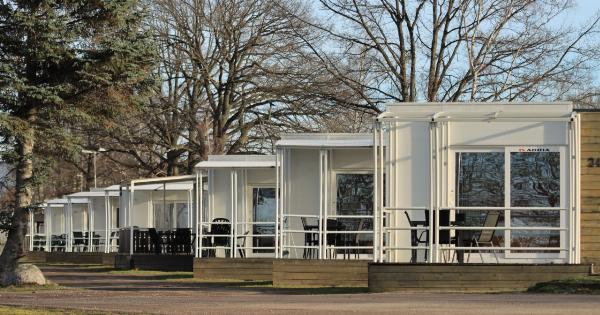As the holiday season approaches, many people find themselves indulging in rich and heavy meals. While it is customary to enjoy festive dishes during this time, overindulgence can lead to digestive issues, such as constipation.
Constipation is a common problem that can cause discomfort and disrupt your holiday plans. However, with a few simple lifestyle changes, you can prevent constipation and ensure a smooth and enjoyable holiday season.
1. Stay Hydrated
One of the most important factors in preventing constipation is maintaining adequate hydration. During the holiday season, it can be easy to forget to drink enough water, especially with all the indulgent beverages available.
However, staying hydrated is crucial for promoting healthy digestion and preventing constipation. Aim to drink at least eight glasses of water per day, and limit your intake of dehydrating beverages, such as alcohol and caffeinated drinks.
2. Eat Fiber-Rich Foods
Another effective way to prevent constipation is by including plenty of fiber-rich foods in your holiday meals. Fiber adds bulk to the stool, making it easier to pass through the digestive system.
Include fruits, vegetables, whole grains, and legumes in your diet to boost your fiber intake. Additionally, opt for whole grain bread and pasta instead of refined varieties to ensure you’re getting enough fiber during the holiday season.
3. Maintain a Balanced Diet
While it’s tempting to indulge in holiday treats and lavish feasts, it’s important to maintain a balanced diet to prevent constipation. Incorporate a variety of fruits, vegetables, lean proteins, and whole grains into your meals.
Be mindful of portion sizes, limit your intake of high-fat and fried foods, and try to include healthy fats, such as avocados and nuts, in your diet. A balanced diet not only prevents constipation but also supports overall wellness during the holiday season.
4. Stay Active
Physical activity is crucial for maintaining smooth bowel movements and preventing constipation. During the holiday season, it can be challenging to prioritize exercise with all the festivities taking place.
However, even short bursts of activity can make a significant difference. Take regular walks after meals, incorporate simple home workouts, or engage in fun holiday activities that involve movement. Staying active not only aids digestion but also helps counterbalance any excess calorie consumption.
5. Avoid Delaying Bathroom Trips
When you feel the urge to use the bathroom, it’s essential to respond promptly. Ignoring the urge to have a bowel movement can lead to constipation over time.
During the holiday season, it’s common to get caught up in socializing or engaging in activities, causing us to delay bathroom trips. However, make it a priority to address your body’s signals and visit the bathroom when needed. This will help prevent constipation and maintain regular bowel movements.
6. Manage Stress Levels
The holiday season is often associated with heightened stress levels. Unfortunately, stress can impact your digestive system and contribute to constipation. Finding healthy ways to manage stress is crucial for maintaining optimal digestive health.
Engage in stress-relieving activities such as meditation, yoga, deep breathing exercises, or spending time with loved ones. Prioritizing self-care can help keep stress at bay and prevent constipation during the holiday season.
7. Limit Processed Foods and Sweets
Processed foods and sweets are often abundant during the holiday season, but they can contribute to constipation. These foods are typically low in fiber and high in unhealthy fats and sugars.
While it’s perfectly fine to indulge in moderation, excessive consumption can lead to digestive issues. Opt for healthier alternatives whenever possible, such as homemade treats using natural ingredients or choosing fresh fruits for snacking. By limiting processed foods and sweets, you can reduce the risk of constipation.
8. Be Mindful of Medications
If you’re taking any medications during the holiday season, be mindful of their potential side effects, including constipation. Some medications, such as pain relievers, antacids, and certain supplements, can slow down the digestive system.
Always read the labels and consult your healthcare provider or pharmacist about any potential effects on your bowel movements. If constipation arises as a side effect, ask your healthcare provider about possible solutions or alternatives.
9. Create a Routine
Establishing a regular bathroom routine can help regulate your bowel movements and prevent constipation. Try to visit the bathroom at the same time each day, preferably after meals when the body is naturally more likely to initiate bowel movements.
Stick to this routine as much as possible, even during the busy holiday season. Creating a consistent bathroom routine trains your body to expect regular elimination, reducing the chances of constipation.
10. Seek Natural Remedies When Needed
If despite your efforts, constipation persists, there are several natural remedies you can try. Certain herbal teas, such as peppermint or ginger tea, can help stimulate digestion.
Increasing your intake of probiotic-rich foods, like yogurt or fermented vegetables, can also support healthy digestion. However, always consult with a healthcare professional before trying any new remedies, especially if you have any pre-existing health conditions or are on medications.































